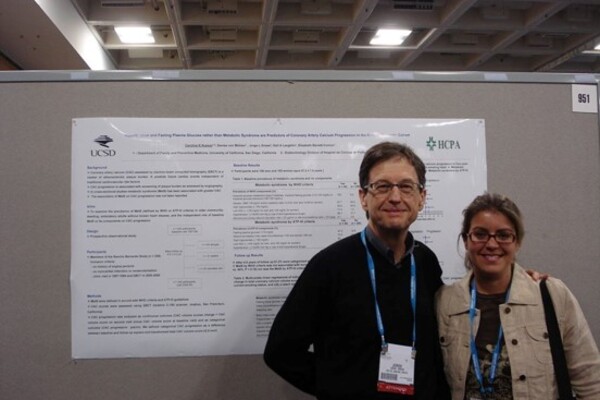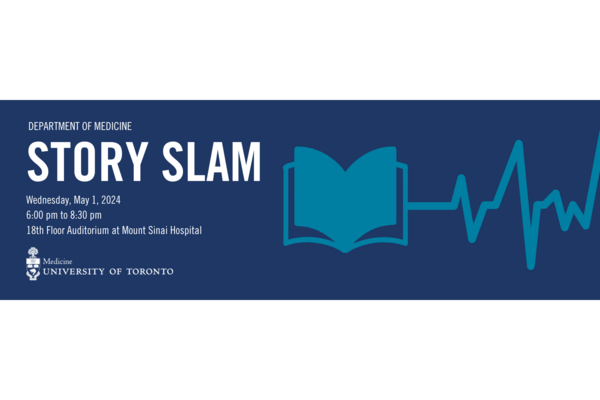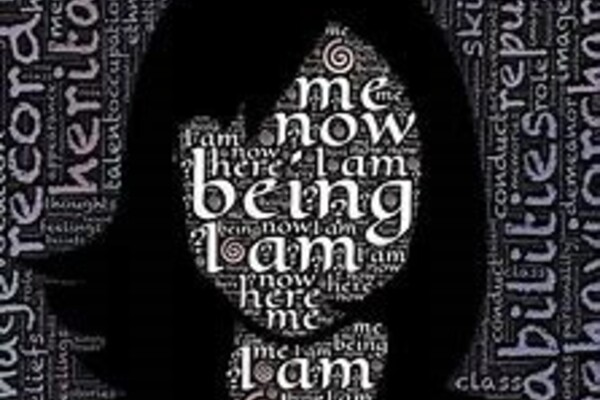Department of Medicine’s Statement to Support 2SLGBTQ+ Faculty Members and Trainees on Transgender Day of Remembrance (Nov 20, 2023)
On behalf of the 2SLGBTQ+ Think Tank Co-Chairs and Vice-Chair, Culture and Inclusion
Canada is home to a community of over 1 million 2SLGBTQ+ individuals, with 1 in 300 people in the country identifying as transgender or gender diverse (TGD).1 Within the medical community, there is a growing number of physicians, learners, and researchers who either identify as TGD, or more broadly, as members of the 2SLGBTQ+ community. In 2021, 7.9% of our faculty identified as a non-heterosexual sexual orientation and 1% had a non-cis-gendered gender identity in the Department of Medicine’s (DoM) inaugural self-identification survey. The increasing sentiments and policies affecting the 2SLGBTQ+ community, both in Canada and in the United States, have compelled the members of the DoM’s 2SLGBTQ+ Think Tank - an affinity group with the DoM’s Culture and Inclusion (CI) portfolio - to compose this statement with the support of CI leadership.
Our primary aim is to convey deep concern regarding the repercussions of the prevailing policies targeting 2SLGBTQ+ communities throughout North America. Currently, it is disheartening to note that 23 states in the United States have either enacted legislation or committed to executive action that adversely affects the lives of TGD individuals.2 Among these states are notable places such as Florida, Texas, North Carolina, Louisiana, and others, which are frequently chosen as venues for annual meetings of various societies and house numerous fellowship programs. In May 2023, the U.S. Department of Homeland Security also warned that threats of violence against the LGBTQ+ community were becoming more frequent and intense. This prompted the Canadian government to issue a travel advisory to alert members of the 2SLGBTQ+ community to “carefully consider whether you are comfortable visiting a destination where the laws and social customs affecting (LGBTQ+) people differ from those in Canada.”3 As such, TGD faculty and trainees may not have the same opportunity to attend conferences or pursue training opportunities as their non-TGD colleagues.
We strongly advocate for the Department of Medicine to recognize that these policies have a differential impact on the ability of TGD faculty and learners to receive the benefits of conference attendance or receiving additional training. It is our collective belief that acknowledging and addressing these challenges will help foster a more inclusive and equitable environment for all members of our community.
We are very concerned that much of the discourse that has provided an animating force to anti-TGD legislation in the US is gaining traction in Canada. New legislation has been passed in Saskatchewan4 and tabled in New Brunswick that aims to compel teachers to inform parents if a student has disclosed a trans or non-binary gender identity under the guise of ‘parental rights,’ and similar policy discussions are emerging at Ontario’s cabinet table. Parental rights legislation often serves as a harbinger of the passage of laws with greater discriminatory intent, such as those which restrict washroom access or prevent trans people from having legal status in their preferred gender identity. Additionally, one prominent front-running political party has recently endorsed a platform initiative which seeks to ban trans people from accessing gender-separated spaces, including washrooms, changing facilities, locker rooms, shelters, and prisons, and would also seek to ban gender affirming therapies for minors even when parental consent is provided. Trans activists and members of the 2SLGBTQ+ community have raised concerns that six Canadian provinces are at moderate to high risk of further legislating against TGD individuals, and DoMs across the country need to be aware and ready to take action to protect their trainees and colleagues.
There is great concern that over the coming years, the passage of these draconian policies into law will create a climate that will make it uncomfortable and dangerous for 2SLGBTQ+ faculty and trainees to pursue scholarly and training opportunities in certain parts of Canada as well, and further raise concerns that 2SLGBTQ+ funding and research initiatives promoting equity, diversity and inclusion may not be a priority for the next federal government. As a result, the DoM also needs to find strategic ways to insulate these initiatives from any possible reductions in funding from federal and provincial funding agencies.
It is our hope that this letter enhances the situational awareness of our community in the Department of Medicine, Temerty Faculty of Medicine and across the country. It is also our hope that this prompts us to work proactively to address emerging threats to the well-being and safety of our 2SLGBTQ+ colleagues, and to work in concert with members of the 2SLGBTQ+ community and their allies to seek solutions that assure the safety and preserve the dignity of 2SLGBTQ+ medical learners and faculty members.
Specifically, the 2SLGBTQ+ Think Tank and the DoM’s Culture and Inclusion portfolio strongly call upon our DoM colleagues and departments to:
- Continue to unequivocally support 2SLGBTQ+, and most importantly TGD individuals, and to strongly advocate against policies across Ontario and Canada that limit access to gender affirming care and safety for TGD individuals
- Work with individual divisions in the DoM and other departments across the Temerty Faculty of Medicine to ensure there is a strategy related to accommodating support for 2SLGBTQ+ individuals’ (both faculty and learners) professional development
- Commit to working with DoM’s across Canada to develop a unified message of support that prioritizes the inclusion, safety, and professional development of 2SLGBTQ+ staff and trainees
There is strength in unity, and in light of the evolving political climate and its direct impact on the safety and well-being of 2SLGBTQ+ faculty members and learners, the DoM and the Culture and Inclusion portfolio are unequivocally committed to fully supporting our 2SLGBTQ+ community during these uncertain times.
Sincerely,
2SLGBTQ+ Think Tank Co-Chairs: Drs. Tehmina Ahmad, Andriy Katyukha and Laura Targownik
Dr. Umberin Najeeb, Vice-Chair, Culture and Inclusion, Department of Medicine
1. Statistics Canada: The Daily — A statistical portrait of Canada's diverse LGBTQ2+ communities (statcan.gc.ca)
2. https://translegislation.com/bills/2023/passed
3. https://travel.gc.ca/travelling/health-safety/lgbt-travel
4. https://www.saskatchewan.ca/government/news-and-media/2023/october/20/parents-bill-of-rights-passed-and-enshrined-in-legislation
5. ACLU LGBTQ Rights: https://www.aclu.org/legislative-attacks-on-lgbtq-rights
6. Sex and Gender Office at UofT: https://sgdo.utoronto.ca/events/trans-awareness-week/



